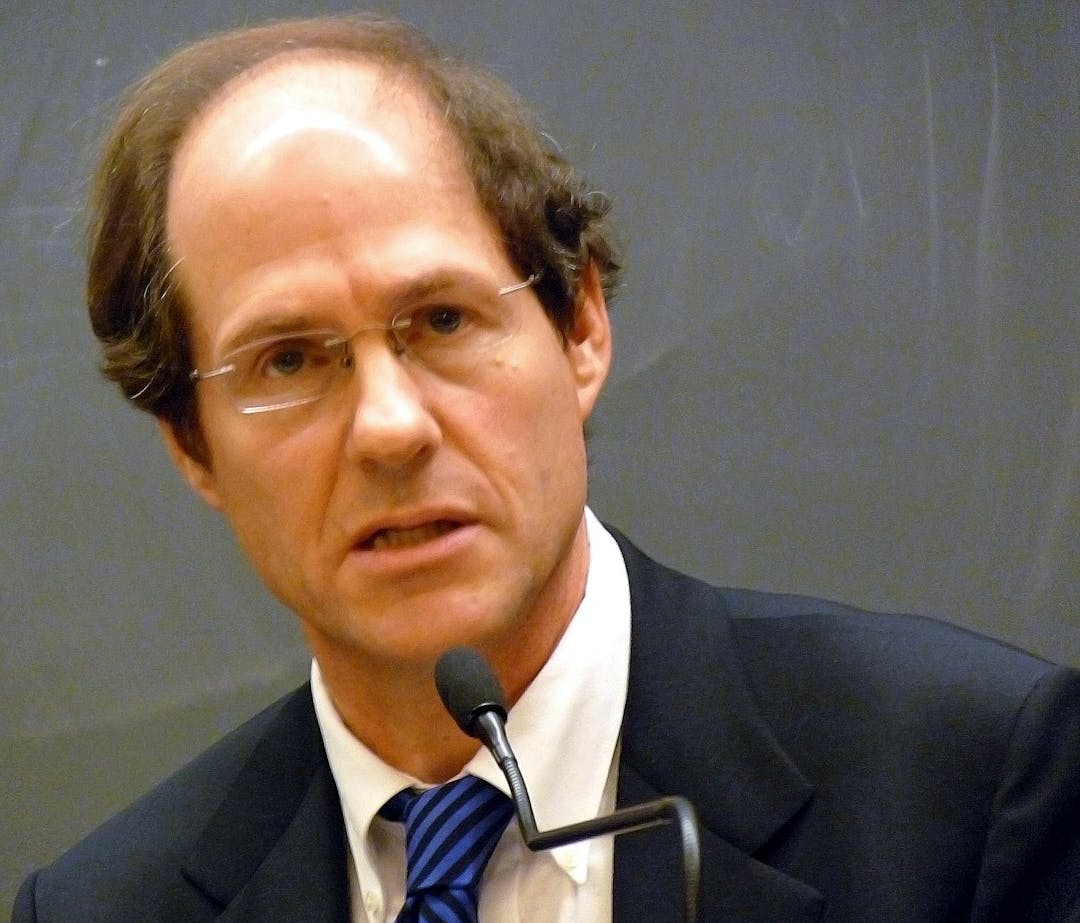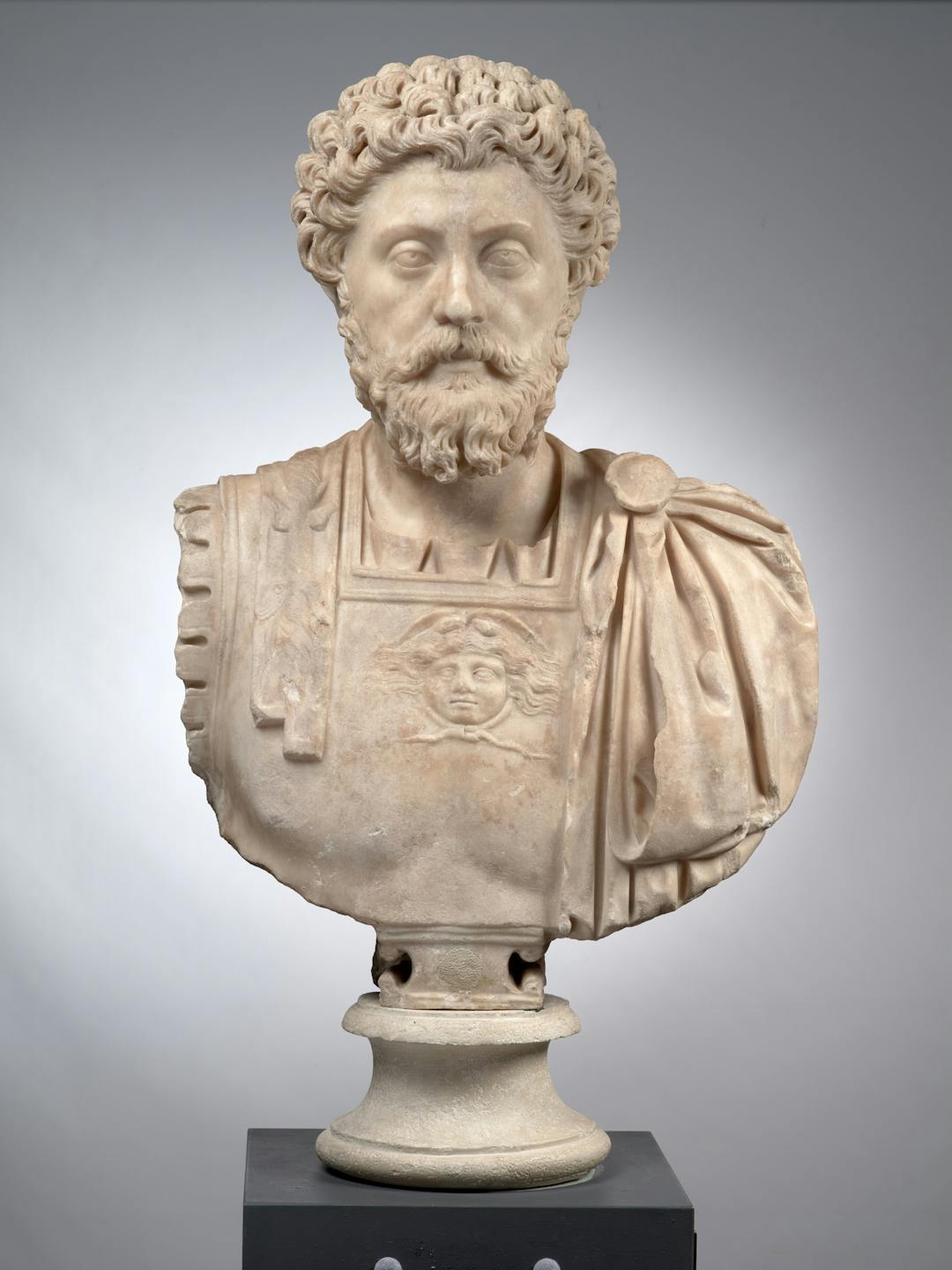Barry Schwartz
How Choice, Ideas, and Rules are Holding Us Back
Intro
“When products are essentially equivalent, people go with what’s familiar, even if it’s only familiar because they know its name from advertising.”
― Barry Schwartz, The Paradox of Choice: Why More Is Less
Writer and psychologist Barry Schwartz has a vision for our future. In it, there is less choice, less rules, and there are less faulty ideas about human nature. His work challenges us to think outside the box about the potential of humanity, and to abandon our preconceived notions of what will make us happy.
Drawing on psychological research into the differences between human and animal cognition, and human happiness and decision making, Schwartz’s theories have shaped the ideas behind his extensive body of work. Schwartz is famous for his provocative ideas that ultimately speak to what can make humans less stressed and more pleased with their lives. His most recent and perhaps most relevant work, Brilliant: The Art and Science of Making Better Decisions, offers 14 guided lectures on how to make decisions that improve your life.
Learning to choose is hard. Learning to choose well is harder. And learning to choose well in a world of unlimited possibilities is harder still, perhaps too hard.
– Barry Schwartz, Barry Schwartz
On their shoulders
For millennia, great thinkers and scholars have been working to understand the quirks of the human mind. Today, we’re privileged to put their insights to work, helping organizations to reduce bias and create better outcomes.
Paradox of choice
Paradox of choice―how an abundance of options ultimately makes us miserable.
According to Barry Schwartz, it is infinitely harder to make a decision when you have more options to choose from. Nowadays, this effect can be seen everywhere, from the doctor’s office to the shoe store to your Netflix homepage.
Schwartz hasn’t been the only one to notice the paradox of choice as a daily struggle, and his work cites an anonymous colleague who studied investments in retirement plans. According to this colleague’s study, adding an extra 10 options for retirement plans makes 2% less people choose a retirement plan each time. Clearly, people put off and avoid choice when extra options are added.
“Across many domains of psychology, one finds that X increases Y to a point, and then it decreases Y....There is no such thing as an unmitigated good. All positive traits, states, and experiences have costs that at high levels may begin to outweigh their benefits.”
― Barry Schwartz
According to Schwartz, the paradox of choice occurs because knowing we had many choices increases our regret when we inevitably make the wrong one. Having more and more options increases our opportunity for comparison, convincing us that one of the other choices ought to have been perfect. In the face of choice, we fail to realize that “perfect” does not exist.
When we make a poor choice in the face of many options, we engage in self-blame. While many choices should theoretically provide liberation, they instead cause us paralysis.
While you can see the paradox of choice play out in virtually every aspect of your life, one particularly relevant example might be dating apps. Whether you’re on Hinge, Bumble, or Plenty of Fish, you know the options for dates are now endless. While you may be on an enjoyable date with a perfectly nice person, it can be hard to commit to one person, knowing there are a whole stream of people at home just waiting to be swiped. In fact, most Americans today apparently say that dating apps leave them feeling more frustrated than hopeful.
While having every choice available to us leaves us regretful about our choices, the other side of the coin yields no choice at all, equally as damning. According to Schwartz, there is a happy level of some choice that North American society must reach in order to heal.
Moreover, a global income redistribution project that could give some of our choice, presumed to come with income, to less fortunate countries. Hypothetically this would benefit everyone immensely.
“On the other hand, the more we think about opportunity costs, the less satisfaction we’ll derive from whatever we choose. So we should make an effort to limit how much we think about the attractive features of options we reject.”
―Barry Schwartz, The Paradox of Choice: Why More Is Less
Idea technology
Idea technology―how ideas about society and human nature endure through the institutions that are created as a result of them.
Barry Schwartz’s notion of idea technology describes how sometimes faulty beliefs about society are maintained and perpetuated through the design of society itself.
Defined first in 1999 in Maryanne R. Bednar and John J. Sweeder’s article “Defining and Applying Idea Technologies,” idea technologies were first described as a way of monitoring and increasing both structure and flexibility in learning environments. Schwartz built on this idea, taking it out of the classroom and into the larger world.
“But clearly, the lesson is that incentives can be a dangerous weapon. A critic of this research might say that the problem is not incentives, but dumb incentives. No doubt, some incentives are dumber than others. But no incentives can ever be smart enough to substitute for people who do the right thing because it’s the right thing.”
― Barry Schwartz, Why We Work
According to Schwartz, idea technologies are the most important technologies we have. In essence, our beliefs about innate human nature, sometimes faulty though they are, influence how we design the institutions in which human nature flourishes: governments, corporations, schools, workplaces, and households.
The very structure and design of these institutions creates people who are, in turn, fitted to perform exactly what these institutions demand. It is not, according to Schwartz, a coincidence.
An example of idea technology is the long-held belief that humans are innately lazy. Nowadays, in a society in which paying people to work has long existed, levels of laziness have only been maintained and increased. This long standing belief will now never go away, because an entire societal structure was designed with it in mind.
As you can see, social science creates ways of understanding ourselves that have impacts in real society. Our ideas about human nature hold true and impact the way we design the world around us, which in turn helps us maintain those same beliefs about who we are.
Idea technologies thus have huge influences on how we think, act, and what we aspire to. Moreover, even when these ideas are false, they create circumstances and societies that end up bringing truth to them. As a result, human nature is actually changed by our beliefs about it.
According to Schwartz, we can mitigate this flaw by testing our beliefs about human nature before we implement them into practice. Psychologists, rather than accepting current patterns of behavior as “human nature,” should interrogate and study these beliefs in depth so that we can better understand their nature.
“Chances are that, even if it is ‘human nature,’ it's a human nature that's been created, not discovered.”
―Barry Schwartz
Practical wisdom
Practical wisdom―the moral skill or judgment that enables us to navigate social situations in our everyday activities.
Practical wisdom is something we all have, and it can help us make on-the-fly decisions that come to us largely through a “gut feeling.”
But according to Barry Schwartz, it is largely overlooked in North American workplaces.
The term “practical wisdom” was first used by Aristotle to describe traits like loyalty, perseverance, mindfulness, and kindness. Wisdom, apparently, is a form of moral intelligence. Schwartz and his colleague Kenneth Sharpe, with whom he wrote Practical Wisdom: The Right Way to Do the Right Thing, built on this idea to describe how practical wisdom is under-utilized in modern society.
“Emotions properly trained and modulated, Aristotle told his readers, are essential to being practically wise: We can experience fear, confidence, desire, anger, pity, and generally any kind of pleasure and pain either too much or too little, and in either case not properly. But to experience all this at the right time, toward the right objects, toward the right people, for the right reason, and in the right manner—that is the median and the best course, the course that is a mark of virtue.”
―Barry Schwartz, Practical Wisdom: The Right Way to Do the Right Thing
In essence, Schwartz preaches that while standardized rules and regulations function in workplaces and schools to avoid disaster, they also cause a loss of creativity and intuition, thus issuing mediocrity as our societal standard.
In his TEDTalk, “Our Loss of Wisdom,” Schwartz cites a standard reading exercise performed in Chicago kindergarten classes, sketched out by 25 steps. While following the protocol for this reading task ensures that everything will go according to plan, it may also prevent the opportunity for children to think outside the box or learn something not prescribed within the 25 steps.
“The good news is you don’t need to be brilliant to be wise. The bad news is that without wisdom, brilliance isn’t enough.”
― Barry Schwartz, “Our Loss of Wisdom” TEDTalk
Similarly, when custodians are asked about their day-to-day work, many of them cite having to use their “people skills”: for example, they may avoid an area to be cleaned if it is occupied, engage with passers-by, or make judgments about at what times rooms are likely to need cleaning based upon the activities that occur inside them.
And yet, in a typical job description of a custodian, judgment, empathy, friendliness, and understanding are rarely listed as requirements.
Clearly, North American workplaces have failed to screen and utilize practical wisdom. Rather, corporations and institutions seek employees who can take orders, follow rules, and stay within guidelines.
“When asked about what they regret most in the last six months, people tend to identify actions that didn’t meet expectations. But when asked about what they regret most when they look back on their lives as a whole, people tend to identify failures to act.”
― Barry Schwartz, The Paradox of Choice: Why More Is Less
The idea of practical wisdom can give us the courage to think outside the box and trust our intuition, rather than the set of rules before us. While rules and protocols are still common in North American institutions in order to prevent trouble, our society may make strides in creativity and innovation by loosening up the rules and trusting workers to use their practical wisdom to make their own judgment calls.
In turn, they may end up making better ones than the rules themselves.
Historical biography
“Most of us think about empathy as a “feeling” or an “emotion.” It is. To be empathetic is to be able to feel what the other person is feeling. But empathy is more than just a feeling. In order to be able to feel what another person is feeling, you need to be able to see the world as that other person sees it. This ability to take the perspective of another demands perception and imagination. Empathy thus reflects the integration of thinking and feeling.”
― Barry Schwartz, Practical Wisdom: The Right Way to Do the Right Thing
Barry Schwartz was born in New York in 1946, and earned his BA in Psychology at New York University in 1968. In 1971, he finished his PhD at the University of Pennsylvania.
Within the same decade, Schwartz published his first book, Psychology of Learning and Behavior. His early work focused on animal learning, operant and classical conditioning, and comparative cognition. He was interested in psychological differences between animal species and humans.
“Knowing that you’ve made a choice that you will not reverse allows you to pour your energy into improving the relationship that you have rather than constantly second-guessing it.”
― Barry Schwartz, The Paradox of Choice: Why More Is Less
Over time, Schwartz’s work moved away from animals and deeper into the lives of people. He began to study consumerism, leading to his well-known concept “paradox of choice”; motivation and incentive, as well as cultural beliefs about work and “idea technology”; and morality and decision-making, specifically “practical wisdom.”
Schwartz’s work ultimately tries to improve people’s quality of life, as he writes and speaks about how better decision making can lead to more happiness and less stress.
“Ninety percent of adults spend half their waking lives doing things they would rather not be doing at places they would rather not be.”
―Barry Schwartz, Why We Work
Schwartz currently works as the Dorwin P. Cartwright Professor of Social Theory and Social Action at Swarthmore College, a private liberal arts college in Swarthmore, Pennsylvania.
In his TEDTalk, “What role does luck play in your life?” Schwartz attributes most of his career trajectory to luck, describing how he originally took an Introduction to Psychology course during university only because it fit well into his schedule. He had no idea what Psychology even meant.
“You buy a pair of shoes that turn out to be uncomfortable. Thaler suggests the more expensive they were, the more often you'll try to wear them. Eventually you'll stop wearing them, but you won't get rid of them. And the more you paid for them the longer they will sit in your closet. At some point, after the shoes have been fully depreciated psychologically, you will throw them away.”
― Barry Schwartz, The Paradox of Choice: Why More Is Less
Books, lectures, and articles
Brilliant: The Art and Science of Making Better Decisions (2018): In this 14-lecture audio course, Schwartz gives evidence-based insights into how you can make wiser decisions that will ultimately make you happier and less stressed.
Why We Work (2015): In this book, Schwartz breaks down the misguided conceptions our society holds about work, and why monetary compensation is not a good enough incentive to work well or hard. He provides insight into why so many people are dissatisfied and unfulfilled at work, digging into the roots of our troubled cultural beliefs about work.
Practical Wisdom: The Right Way to do the Right Thing (2010): This book is about ridding oneself of societal rules and expectations and getting back in touch with one’s own wisdom. It guides the reader toward their own intelligence and integrity, convincing the reader to embrace wisdom, a human quality that has been sucked out of our culture.
The Paradox of Choice: Why More is Less (2004): In this book, Schwartz details his theory of “paradox of choice,” and how an abundance of choices leads to mental health issues like depression and anxiety, as well as general shopper dissatisfaction, in many cases. He argues that there should be some choice, but much less, in order to leave consumers feeling more satisfied.
The Costs of Living: How Market Freedom Erodes the Best Things in Life (2001): Schwartz takes us back to basics in this book by showing us how our greed and consumerism are costing us our health, education, and time spent with loved ones. His writing provides a reality check into how ambition towards good grades and a fat pay cheque leaves us missing so many of life’s greatest things.
Learning and Memory (1991): This book details how our memories book, and many of the biases and heuristics that our faulty memories lead us to make when making decisions.
The Battle for Human Nature: Science, Morality and Modern Life (1986): In this book, Schwartz answers the question, “Are humans inherently self-interested?” While working through concepts of selfishness and “human nature,” Schwartz exposes the reasons many experts falsely believe that humans are greedy beings out to further only their own fortune.
Behaviorism, Science, and Human Nature (1983): This book is an introduction to animal learning and operant and classical conditioning.
Psychology of Learning and Behavior (1978): This book is an introduction to comparative cognition, which describes the differences in how different animal species learn and think. It also touches on animal research such as classical and operant conditioning.
TED page: Barry Schwartz has spoken at TED five times from 2006-2020. His talks span his theories of paradox of choice, idea technology, practical wisdom, the role of luck, and society’s misguided conceptions about work.
References
Schwartz, B. (2005, July). The paradox f choice. TED: Ideas worth spreading. https://www.ted.com/talks/barry_schwartz_the_paradox_of_choice?language=en
Schwartz, B. (2020, October 7). What role does luck play in your life? [Video]. YouTube. https://www.youtube.com/watch?v=nm75Fz6D5nA&ab_channel=TED
Schwartz, B. (2014, March). The way we think about work is broken [Video]. TED: Ideas worth spreading. https://www.ted.com/talks/barry_schwartz_the_way_we_think_about_work_is_broken
Barry Schwartz (psychologist). (2005, November 16). Wikipedia, the free encyclopedia. Retrieved January 12, 2021, from https://en.wikipedia.org/wiki/Barry_Schwartz_(psychologist)
Schwartz, B. (1997). Psychology, Idea, Technology, and Ideology. Psychological Science, 8(1), 21-27. https://doi.org/10.1111/j.1467-9280.1997.tb00539.x
What is practical wisdom and why do we need it? Motivated mastery. (2015, November 16). Motivated Mastery. https://motivatedmastery.com/what-is-practical-wisdom-and-why-do-we-need-it/
10 facts about Americans and online dating. (2020, June 4). Pew Research Center. https://www.pewresearch.org/fact-tank/2020/02/06/10-facts-about-americans-and-online-dating/
About the Author
The Decision Lab
The Decision Lab is a Canadian think-tank dedicated to democratizing behavioral science through research and analysis. We apply behavioral science to create social good in the public and private sectors.





